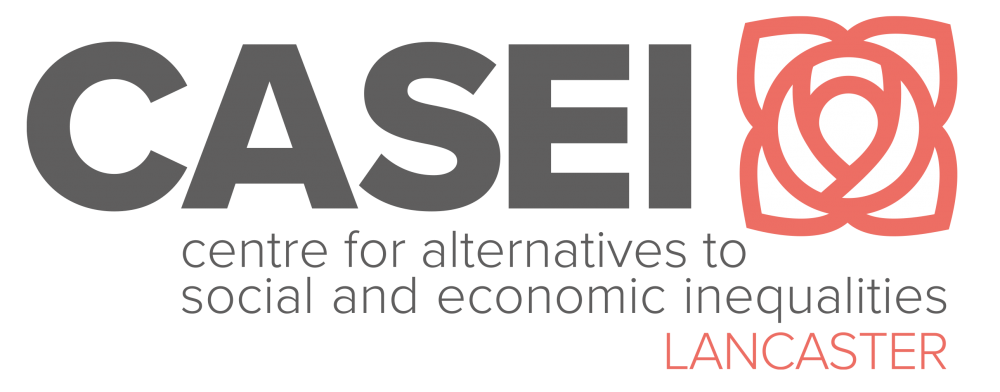An international seminar series debating ongoing transformations in care and new ideas for the future, with speakers from academia, unions, care organisations and beyond.
The Centre for Alternatives to Social and Economic Inequality (CASEI) at Lancaster University support the Transforming Economies of Care Seminar Series. This international online seminar series will debate ongoing transformations of care – driven by investors, technology, organisers and communities – as well as new ideas for the future. Convened by Bev Skeggs (Lancaster University), Emma Dowling (University of Vienna), Daisy May Barker (Lancaster University) and Amy Horton (University College London), the panels feature speakers from academia, unions, care organisations and beyond.
The coronavirus crisis revealed who keeps life going by doing the jobs that no society can do without. These jobs include the work of caring for others, whether in an unpaid or paid capacity. During lockdowns, households were left to juggle the multiple demands of caring for others, home-schooling and working from home, with the assumption that the work would get done… somehow. Also, the world was kept going by paid care workers, who include some of the most precarious and lowest paid workers in existence – most of whom are women, and many of whom are migrant workers. In many countries, the pandemic directed a spotlight on the acute difficulties that have beset the health and social care sector for a long time, raising awareness of the lack of resources and equipment available to health and other care workers, bringing issues of understaffing, long hours, and low pay to the fore. The inability to sufficiently protect not only the staff but, tragically, so many of the residents of care homes, is symptomatic of the lack of value attributed to both carers and their recipients.
The pandemic exacerbated the existing crisis of care. And while many people long for a return to normal, for many others, “normal” was not a tenable situation given the substantial weaknesses of welfare provision prior to the pandemic. Yet health provision and social care have also been shown to be potentially lucrative areas for investment, when governments shoulder the risk. However, care is not easily rendered profitable. The consequences of experiments with new financial models, including pension fund investments and private equity-led business models for care, has not only subjected the sector to financial profiteering, but has changed the conditions under which care is accessed and provided. Many of these experiments have occurred through “stealth” and are having serious consequences as the search for profit moves around the care sector. All the while, the volatilities of ongoing global economic crisis take their toll and climate change demands a radical social and economic reorganisation.
Our seminar series asks: What would real care look like? What are the processes at play that affect the politics and economics of care? What new political demands are needed and what new forms of organising and struggle are already emergent? In short: What are the current economies of care and how might they be transformed? These are the questions we want to address in this seminar series and we cordially invite you to join us.
Titles, Dates and Times of Seminars
- Migrant Domestic Workers, 25 October 2021, 5-6.30pm
- Financing Care, 13 December 2021, 4-5.30pm
- Platform Care, 24 January 2022, 4-5.30pm
- Organising Childcare Workers, CANCELLED
- Care, Commons and Remunicipalisation, 25 April 2022, 4-5.30pm
- Climate Change and Care, 9 May 2022, 4-5.30pm
Resources and materials used by speakers in previous events when made available can be accessed through the Resources page.
Please direct any queries on events or the seminar series to Michael Lambert at CASEI (m.lambert3@lancaster.ac.uk).
